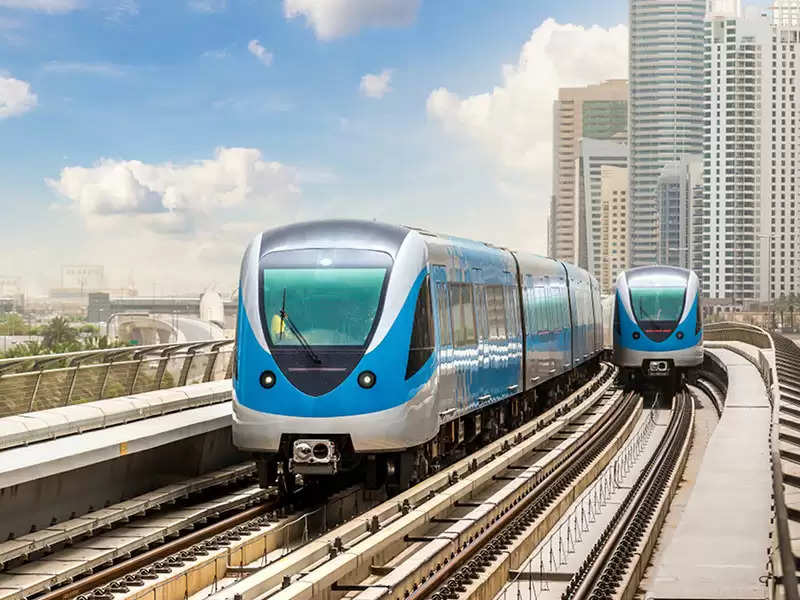Moving to Dubai with Family After Wedding – Step by Step Guide #dubai

Moving to Dubai with your family is an exciting yet challenging journey. As one of the world’s most dynamic cities, Dubai offers a unique blend of cultural diversity, modern amenities, and an unparalleled quality of life. However, relocating to a new country requires careful planning, especially when you have a family to consider. This guide will walk you through the essential steps of moving to Dubai, from understanding legal requirements to choosing the right neighborhood, finding schools, and settling into the community. Whether you are moving for work or simply seeking a new adventure, this step-by-step guide will ensure a smooth transition for your family.

2. Why Dubai?
Advantages of Living in Dubai
Dubai is known for its high standard of living, safety, and excellent infrastructure. The city is a melting pot of cultures, making it an ideal place for families who appreciate diversity. With its thriving economy, abundant job opportunities, and tax-free income, Dubai attracts professionals from all over the world. The city also boasts world-class healthcare, education, and entertainment options, ensuring a comfortable life for you and your family.
Family-Friendly Environment and Culture
Dubai is renowned for its family-friendly environment. The city offers a range of activities and amenities tailored for families, including parks, beaches, and cultural attractions. The local culture, influenced by Islamic values, places a strong emphasis on family life. Additionally, Dubai is one of the safest cities in the world, with low crime rates and a secure environment for children.
3. Legal Requirements
Visa Types and Application Process
Before moving to Dubai, it's essential to understand the visa requirements. The most common visa types for expatriates include the work visa, dependent visa, and investor visa. The process involves securing a job offer or establishing a business in Dubai, after which you can apply for a residency visa. The visa application process is straightforward, but it requires several documents, including your passport, medical examination results, and a sponsor’s (employer or spouse) letter.
Work Permits and Residency Requirements
If you plan to work in Dubai, you will need a work permit in addition to your residency visa. Employers usually handle the work permit application process. For those who wish to bring their families, the primary visa holder must meet specific salary requirements to sponsor dependents. Once you have the necessary permits, you can apply for Emirates ID, which is mandatory for all residents.
Dependents and Family Sponsorship
Sponsoring your family to move to Dubai involves providing proof of your relationship (marriage and birth certificates), meeting the minimum salary threshold, and securing adequate housing. The process can take several weeks, so it’s important to start early. Family members on a dependent visa are not allowed to work unless they obtain a separate work permit.
4. Choosing the Right Neighborhood
Family-Friendly Neighborhoods
Dubai offers a variety of neighborhoods that cater to different lifestyles and budgets. For families, popular areas include Jumeirah, Arabian Ranches, and Emirates Hills. These neighborhoods provide spacious villas, excellent schools, and easy access to parks and recreational facilities. Other options include Mirdif and Al Barsha, which offer more affordable housing while still maintaining a family-friendly atmosphere.
Proximity to Schools and Amenities
When choosing a neighborhood, consider its proximity to schools, healthcare facilities, and other essential amenities. Traffic in Dubai can be challenging during peak hours, so living close to your child’s school or your workplace can save time and reduce stress. Neighborhoods like Dubai Marina and Downtown Dubai offer a central location but may come with a higher price tag.
Cost of Living Considerations
The cost of living in Dubai varies depending on the neighborhood. Premium areas like Palm Jumeirah and Dubai Hills Estate are more expensive, while communities like Discovery Gardens and Silicon Oasis offer more budget-friendly options. It’s essential to balance your housing needs with your budget to ensure a comfortable lifestyle for your family.
5. Education Options
Types of Schools in Dubai
Dubai offers a wide range of educational options, from public schools to private international schools. Public schools are primarily attended by Emirati children, while expatriate families usually opt for private institutions. These schools follow various curriculums, including British, American, IB, and Indian, allowing parents to choose a system that aligns with their home country or personal preferences.
International Schools and Curriculums
International schools in Dubai are known for their high standards and diverse student bodies. They offer curriculums from countries like the UK, USA, and France, providing a seamless transition for expatriate children. Some of the top international schools in Dubai include Dubai International Academy, GEMS Wellington, and the American School of Dubai.
Admission Process and Fees
Admission to schools in Dubai can be competitive, especially in sought-after institutions. It’s advisable to start the application process as early as possible. Schools typically require an application form, previous school records, and an assessment test. Tuition fees vary widely, with international schools charging higher rates. Some schools also require a non-refundable registration fee upon acceptance.
6. Healthcare in Dubai
Overview of Healthcare System
Dubai boasts a world-class healthcare system, with both public and private hospitals offering high-quality medical services. The city is home to several JCI-accredited hospitals, ensuring international standards of care. Healthcare in Dubai is not free for expatriates, so it’s important to have health insurance to cover medical expenses.
Finding Family Doctors and Specialists
Finding a reliable family doctor is crucial when moving to a new country. Many expatriates prefer private healthcare providers due to shorter waiting times and access to specialists. Hospitals like Mediclinic and Emirates Hospital have dedicated family medicine departments, making it easy to find a doctor that suits your family’s needs.
Health Insurance Options
Health insurance is mandatory for all residents in Dubai. Employers typically provide health insurance for their employees, but it’s important to ensure that your plan covers your family members. Several insurance providers in Dubai offer comprehensive family plans that include coverage for maternity, dental, and specialist services.
7. Finding Accommodation
Types of Housing Available
Dubai offers a variety of housing options, including apartments, villas, and townhouses. High-rise apartments are common in areas like Dubai Marina and Downtown, while villas are more prevalent in suburban neighborhoods like Arabian Ranches and The Springs. Each type of housing comes with its own set of advantages, so it’s important to consider your family’s needs and lifestyle.
Rental vs. Buying Property
Most expatriates in Dubai choose to rent rather than buy property. Renting offers flexibility, especially if your stay in Dubai is temporary. However, for those planning to settle long-term, buying property can be a good investment, particularly with Dubai’s growing real estate market. Understanding the pros and cons of each option will help you make an informed decision.
Understanding Rental Contracts
Rental contracts in Dubai typically last for one year and require tenants to pay rent in advance, often in the form of post-dated checks. It’s important to thoroughly read the contract before signing, paying attention to clauses regarding maintenance, security deposits, and rent increases. Working with a reputable real estate agent can help navigate the rental process smoothly.
8. Cost of Living
Breakdown of Monthly Expenses
The cost of living in Dubai can be high, particularly when it comes to housing and education. On average, a family can expect to spend a significant portion of their income on rent, school fees, and groceries. It’s important to factor in additional costs such as utilities, transportation, and entertainment when budgeting for your move.
Budgeting for a Family in Dubai
Effective budgeting is key to managing your finances in Dubai. Start by estimating your monthly expenses and comparing them to your income. Consider setting aside a portion of your budget for savings and unexpected expenses. Online tools and apps can help you track your spending and ensure you stay within your budget.
Managing Finances Effectively

Managing your finances in a new country can be challenging. It’s important to familiarize yourself with the local banking system, exchange rates, and tax implications. Consider consulting with a financial advisor who specializes in expatriate finances to ensure you’re making the most of your income and investments in Dubai.
9. Transportation
Public Transportation Options
Dubai offers a comprehensive public transportation system, including the metro, buses, and trams. The Dubai Metro is clean, efficient, and a popular choice for commuting. Public buses cover most areas of the city, and the tram serves specific routes. The Nol Card is a convenient payment method for all public transport in Dubai.
Owning a Car in Dubai
While public transportation is reliable, many families choose to own a car for added convenience. Cars are relatively affordable in Dubai, and fuel prices are low. However, traffic can be congested during peak hours, and parking can be challenging in some areas. Make sure to budget for car insurance, maintenance, and Salik (road toll) charges.
Navigating Dubai with Kids
Navigating Dubai with kids requires planning, especially during the hot summer months. Many malls and public places offer kid-friendly facilities, making outings more enjoyable. It’s important to be mindful of traffic safety and always use car seats for young children.
10. Family Activities and Entertainment
Parks, Beaches, and Outdoor Activities
Dubai offers a plethora of outdoor activities for families. Parks like Safa Park and Zabeel Park are perfect for picnics, while beaches such as JBR Beach and Kite Beach provide a relaxing environment for family fun. Many parks also offer play areas, BBQ facilities, and sports courts.
Kid-Friendly Attractions
Dubai is home to several attractions that cater to children of all ages. The Dubai Aquarium, KidZania, and Dubai Parks and Resorts are popular spots for family outings. These attractions offer a mix of education and entertainment, ensuring that kids have a fun and enriching experience.
Cultural and Recreational Centers
Cultural centers like the Dubai Opera and the Sheikh Mohammed Centre for Cultural Understanding provide opportunities for families to learn about the local culture. Recreational centers, including indoor play zones and sports academies, offer activities for children to stay active and engaged year-round.
11. Safety and Security
Crime Rates in Dubai
Dubai is one of the safest cities in the world, with very low crime rates. The city’s strict laws and efficient police force contribute to its overall safety. However, it’s still important to take common-sense precautions, such as keeping an eye on personal belongings and being aware of your surroundings.
Safety Tips for Families
While Dubai is safe, it’s essential to educate your family about local laws and customs. Make sure your children understand the importance of staying close in public places and respecting local cultural norms. It’s also advisable to have a list of emergency contacts readily available.
Emergency Services and Contacts
Dubai’s emergency services are efficient and reliable. The general emergency number is 999, and there are specific hotlines for fire, ambulance, and police. It’s important to familiarize yourself with the location of the nearest hospital and have emergency numbers saved on your phone.
12. Cultural Adaptation
Understanding Local Customs and Traditions
Dubai is a culturally diverse city, but it’s important to respect local customs and traditions. The city’s culture is heavily influenced by Islamic values, and modest dress and behavior are expected in public places. Understanding and adhering to these customs will help you integrate more smoothly into the community.
Language Considerations
While Arabic is the official language of Dubai, English is widely spoken and understood. Most expatriates and locals communicate in English, making it easy for new residents to navigate daily life. However, learning a few basic Arabic phrases can enhance your experience and show respect for the local culture.
Integrating into the Community
Joining community groups, clubs, and associations is a great way to meet new people and integrate into Dubai’s social scene. Many neighborhoods have active expatriate communities, and there are numerous events and activities tailored for families. Participating in local festivals and events is also a wonderful way to immerse yourself in the culture.
13. Employment Opportunities
Job Market Overview
Dubai’s job market is diverse and competitive, with opportunities in sectors like finance, technology, healthcare, and hospitality. The city’s strategic location makes it a hub for international business, attracting professionals from around the world. Job seekers should be prepared for a rigorous application process, including interviews and background checks.
Finding Work as an Expatriate
Networking is crucial when looking for a job in Dubai. Attend industry events, join professional groups, and use online platforms like LinkedIn to connect with potential employers. It’s also advisable to consult with recruitment agencies that specialize in placing expatriates in Dubai.
Balancing Work and Family Life
Balancing work and family life in Dubai can be challenging, especially for those working in demanding industries. Employers in Dubai are known for their high expectations, but many companies offer family-friendly policies, including flexible working hours and parental leave. Finding a job that supports work-life balance is key to a successful relocation.
14. Financial Planning and Banking
Opening a Bank Account
Opening a bank account in Dubai is a straightforward process, but it requires certain documents, including your passport, residency visa, and Emirates ID. Many banks offer accounts specifically designed for expatriates, with features like multi-currency options and international transfers.
Managing Money Transfers
Sending money back home is a common practice for expatriates in Dubai. There are several options for money transfers, including banks, online platforms, and exchange houses. It’s important to compare fees and exchange rates to ensure you’re getting the best deal.
Tax Considerations for Expatriates
One of the major benefits of living in Dubai is the lack of personal income tax. However, expatriates may still have tax obligations in their home countries. It’s advisable to consult with a tax advisor who understands the tax laws in both Dubai and your home country to ensure compliance and optimize your tax situation.
15. Moving Logistics
Hiring Movers and Shipping Belongings
Hiring a reliable moving company is crucial for a smooth relocation. There are several international movers that specialize in helping families move to Dubai. It’s important to get quotes from multiple companies and choose one that offers comprehensive services, including packing, shipping, and insurance.
What to Bring and What to Leave Behind
When moving to Dubai, it’s important to consider what items are essential and what can be left behind. Dubai is a modern city with plenty of shopping options, so you can easily purchase most household items locally. However, sentimental items and specific personal belongings should be packed carefully.
Settling In and Getting Connected
Once you arrive in Dubai, setting up utilities, internet, and other essential services should be a priority. Many landlords assist with this process, but it’s important to ensure everything is in place before moving in. Familiarize yourself with the local service providers and choose plans that suit your family’s needs.
16. Expert Insights
Quotes from Expatriates and Experts
“Moving to Dubai was a life-changing experience for our family. The city offers incredible opportunities, but it’s important to plan carefully and be prepared for the cultural differences.” – Sarah Johnson, expatriate living in Dubai for 5 years.
“Dubai’s education system is world-class, but choosing the right school for your child is key. Visit the schools, talk to other parents, and consider the long-term benefits before making a decision.” – Mark Stevens, education consultant.
Real-Life Experiences of Families Who Have Moved to Dubai
Many families who have relocated to Dubai share similar experiences – the initial excitement, the challenges of adapting to a new culture, and the eventual realization that Dubai offers a unique and rewarding lifestyle. These stories highlight the importance of thorough preparation and an open mind when moving to a new country.
17. Future Outlook
Dubai’s Vision and Future Developments
Dubai is constantly evolving, with ambitious plans for the future. The city’s vision includes becoming a global leader in innovation, sustainability, and tourism. For families moving to Dubai, this means access to cutting-edge infrastructure, new job opportunities, and a vibrant community.
Long-Term Residency Options
Dubai has introduced several long-term residency options for expatriates, including the Golden Visa program. These visas offer stability and the opportunity to build a future in Dubai. Understanding the eligibility criteria and application process is essential for those planning to stay long-term.
Planning for the Future in Dubai
Planning for the future involves considering your family’s long-term goals, such as education, career advancement, and retirement. Dubai offers numerous opportunities for growth, but it’s important to have a clear plan in place. Regularly reviewing your financial situation, staying informed about local developments, and seeking professional advice can help you make the most of your time in Dubai.
18. Conclusion
Moving to Dubai with your family is a significant decision that requires careful planning and consideration. From legal requirements to finding the right neighborhood, school, and job, there are many factors to take into account. However, with its family-friendly environment, excellent infrastructure, and vibrant culture, Dubai offers an unparalleled quality of life for expatriates. By following this step-by-step guide, you can ensure a smooth and successful relocation, allowing you and your family to enjoy all that Dubai has to offer.


